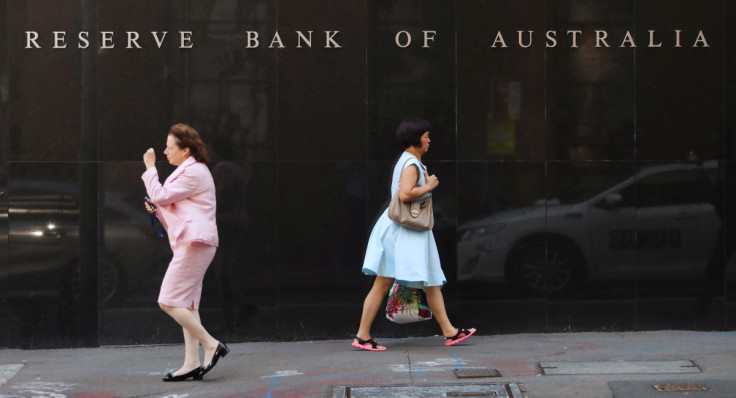Female representation in businesses still fall short as the push for gender equality persists
With the push for representation in domestic and global markets, the failure of gender equality still remains a prevalent issue for women across the UK.

In 2019 the British Government published, "Gender equality at every stage: a roadmap for change," a report that detailed the steps needed to take to tackle the major issues that women were facing in the workplace.
Four years later in a post-pandemic world, the recent trend towards women in leadership positions seems to be on the rise, with companies such as Ocado Retail, The Body Shop and New Look all having female CEOs, putting a new demographic at the forefront of some of the UK's largest retailers.
Despite this improvement, however, a majority of women in most industries in the 21st century still face problems regarding representation in both owning and senior levels of business, with limitations to action on issues in affairs such as maternity, the wage gap and harassment being seen throughout the market.
In 2022, Grant Thornton's women in business research tracked the position of women in senior management across the world, and the progress towards gender parity in leadership. The statistics presented didn't show any signs of significant progress, with the proportion of women being represented at these senior levels of business only increasing by one per cent, with the initial 31 per cent in 2021 to 32 per cent in 2022.
This spoke to a wider issue about the progress being made by governments to move forward and try and increase gender equality in industries most affected by this issue, and whether the initial plans they put in place in 2019 were effective at tackling this.
This has only been exacerbated by the increased attention towards female representation in fields such as STEM (Science, Technology, Engineering and Mathematics) academia and industries, with the current and recent gender gap indicating that figures estimating only 24 per cent of employees were women, with a shocking split for specific disciplines suggesting that engineering professionals rank lowest with only 10 per cent women engineers.
"STEM stereotypes are perpetuated from a young age, and social media and pop culture offer limited role models for young girls who may want to pursue a career in the space," says Susan Margro, the enior director and solutions and systems engineer at Cubic Transportation Systems.
This lack of fundamental improvement can be attributed to systemic stereotypes that pose challenges for women trying to work their way up in their industries. They encounter a pervasive gender bias that undermines their credibility and expertise, leading to limited opportunities for career advancement.
Women encounter barriers such as the glass ceiling, unequal pay, and limited access to high-level decision-making positions, inhibiting their progression into senior management roles. Thus, addressing these issues requires challenging biases, fostering inclusivity, implementing equitable policies, and providing support systems.
The issues arising in small businesses and startups
The issue of underrepresentation, however, seems to have seeped past the corporate levels and has started to have effects on small businesses and startups. This has been illustrated clearly, with recent figures suggesting that women made up fewer than 15 per cent of the workforce in more than one in every five startups.
The complications around startup businesses seem to stem beyond just employees and can be seen as a major issue for founders of companies as well.
A UK VC & Female Founders report suggested that only one per cent of all venture funding goes to businesses founded by an all-female team, with women-led enterprises receiving much less equity investment. This compared to their male counterparts who overall were 86 per cent more likely to receive venture capital and 56 per cent more likely to receive angel investment.
This hurdle towards expansion limits opportunities for women in business to expand as the absence of investment in a company can have adverse effects, including constrained financial resources and a potential lack of guidance and expertise from external sources. This in turn would lead to stagnation as a result of increased financial risk, curbing credibility in the market.
Speaking to Sophia Green and Aaliya Chouduhry, founders of DominAsian Magazine, in an exclusive interview, the societal challenges they faced dealing with gender stereotypes and expectations when they initially started their women-owned business were evident.
They expressed: "Our most significant hurdle was the undermining of our authority and integrity in leading an all-female team when we started. Gaining credibility required consistent effort and asserting dominance. Despite our brand not being exclusively tailored to women, we were swiftly pigeonholed into a female-centric niche."
They further went on how to describe how largely this focused agenda is a "bias that stems from the prevailing prejudices that women in business encounter" suggesting that "businesses owned by men are rarely assumed to have a political agenda."
On the whole, it is clear that more must be done to challenge this underrepresentation of women in fields that they are most underrepresented in. It's evident that the vicious cycle the system practices, affecting both employees and employers, has not been met with enough action.
Thus, more must be done at both a surface and foundational level to tackle this barrier that targets and limits this talent pool.
© Copyright IBTimes 2025. All rights reserved.





















